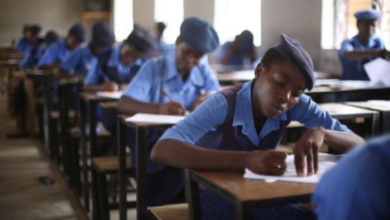Pharma Industries In Africa To Benefit From AfDB’s $3bn

African Development Bank (AfDB) has concluded plans to invest $3 billion in the indigenous pharmaceutical industries in Nigeria and other African countries.
The investment would enable the local firms to establish world-class international vaccine centres in the continent.
The investment when finally injected, will reduce the dependence of Africa on the western world in the area of healthcare delivery and also improve the contribution of the health sector to complement the Nigerian oil sector which accounts for 75.4 per cent of export revenue and 50 per cent of all government revenue.
Owing to this, the bank has advised the government to remove structural bottlenecks that limit the productivity and the revenue earning potential of the huge non-oil sectors in the country.
The President of AfDB, Akinwunmi Adesina, who disclosed while reacting on Nigeria’s Post COVID-19 said that the recovery of Nigeria’s economy would depend on access to vaccines and tackling debts.
He explained that AfDB was projecting Nigeria’s economic growth rate and would rebound to 2.4 per cent this year and rise to 2.9 per cent by 2022.
According to him, the bank had been supporting Africa and Nigeria’s economies with adequate funds in a bid to recover and stabilise economically from the induced COVID-19 pandemic.
Adeshina noted that establishing a $3 billion local pharmaceutical industry in Africa, including Nigeria, would help in the continent’s economic recovery from the global pandemic as it projected the GDP growth of the continent to 3.4 per cent at the end of this year.
He said: “As we meet today, the world continues to deal with the effects of the global COVID-19 pandemic. The pandemic has caused so many deaths and upended global economic growth. Due to COVID-19, Nigeria’s economic growth rate declined to -1.8 per cent in 2020. This mirrors the pattern across Africa, as the continent posted a -2.1 per cent growth rate in GDP, its lowest in two decades.
“The African Development Bank responded rapidly in supporting African countries. We launched a $10 billion Crisis Response Facility to support countries. We provided $289 million in budget support to Nigeria.
“The GDP growth rate for the continent will recover to 3.4 per cent this year. We project Nigeria’s economic growth rate will rebound to 2.4 per cent this year and reach 2.9 per cent by 2022. The recovery will depend on two critical issues: access to vaccines and tackling debt issues.
“Africa has only 2 per cent of its population vaccinated, compared to 54 per cent in the U.S and 75 per cent in Europe. So, while developed countries are receiving booster shots, African countries cannot get basic shots.
“Nigeria must build quality health care systems that will protect its population, today and well into the future. Nigeria must also build world-class local pharmaceutical industries, able to effectively tackle the production of therapeutic drugs and vaccines.
He said that Nigeria must revamp its local pharmaceutical industry and launch strategic investments for local vaccine manufacturing, adding that Africa should not be begging for vaccines but be producing vaccines.
Adesina explained that Nigeria must decisively tackle its debt challenges, noting that the issue was not about the debt-to-GDP ratio, as Nigeria’s debt-to-GDP ratio at 35 per cent was still moderate.
He noted: “The debt service to revenue ratio of Nigeria is high at 73 per cent. Things will improve as oil prices recover, but the situation has revealed the vulnerability of Nigeria’s economy. To have an economic resurgence, we need to fix the structure of the economy and address some fundamentals.”
Speaking further, the renowned farmer explained that there is also a need for government to harmonize all the initiatives in the agriculture space under the supervision of the Food Security Council (FSC) via an emergency arrangement under the supervision of a Special Adviser on Food Security who knows what to do at this period to complement the country’s agric minister in addressing food shortage in the country.
To stem insecurity in the country, the AFAN national president advised President Buhari to be decisive in opening up all the forests that are serving as a haven to bandits.





